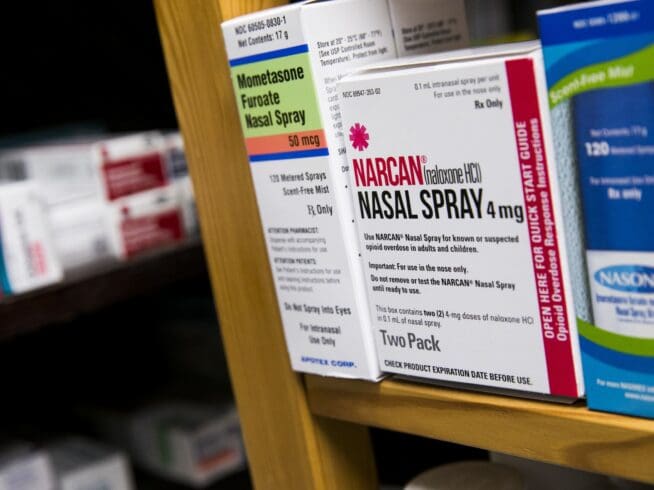Medicare begins negotiating lower prescription drug prices
The 2022 Inflation Reduction Act gave Medicare the power to negotiate prices with pharmaceutical companies.

The U.S. Department of Health and Human Services announced on Feb. 1 that it had sent offer letters to the manufacturers of 10 prescription drugs to begin the process of negotiating the prices Medicare will pay for their products. Medicare’s new ability to negotiate lower drug prices is thanks to a provision in the Inflation Reduction Act, signed into law by President Joe Biden in 2022.
The drugs selected are the medications that Medicare Part D, the prescription drug program, spends the most money on. Medical conditions treated by the drugs include diabetes, blood clots, chronic kidney disease, blood cancers, heart failure, and psoriasis. The brand names that will be affected are Jardiance, Xarelto, Stelara, Novolog, Eliquis, Januvia, Farxiga, Enbrel, Imbruvica, and Entresto.
“Through my Inflation Reduction Act, we’re working to give seniors the best possible deal on their prescription drugs and lower health care costs,” Biden said in a statement. “The days where Americans pay two to three times what they pay for prescription drugs in other countries are ending.”
HHS Secretary Xavier Becerra said in the department’s release that he was confident the negotiation process would ultimately lead to the end of what he called exorbitant price gouging by pharmaceutical companies.
When the Inflation Reduction Act was being debated and voted on in Congress, it faced unified opposition from Republicans in both the House and the Senate and passed with only Democratic votes.
Montana Democratic Sen. Jon Tester supported passage of the bill; his vote was key in the Senate, where a 50-50 split required a tie-breaking vote in favor of the legislation from Vice President Kamala Harris.
“The Inflation Reduction Act will pay down the debt by hundreds of billions of dollars, lower costs for families, cut prescription drug prices, and unleash American energy, all without raising taxes on working Montanans,” Tester said in an August 2022 statement following his vote for the bill.
Tester further noted, “I’ve heard directly from folks in every corner of our state asking me to find solutions that will bring down costs and help our country maintain its place as the leading economic power in the world, and that’s exactly what the Inflation Reduction Act does.”
Republicans Sen. Steve Daines and Rep. Matt Rosendale, the two other members of Montana’s congressional delegation at the time, both opposed the bill.
“The Left continues to push its radical agenda on the American people by passing a spending package that will only accelerate inflation and cripple our nation’s budget,” Rosendale said in an August 2022 statement.
Rosendale is reportedly planning to run in the Republican primary for the Senate seat currently held by Tester.
Rosendale is a cosponsor of H.R. 812, titled the Inflation Reduction Act of 2023, which would repeal the existing law, including Medicare’s price negotiation authority. The bill was introduced in February 2023 by Rep. Andrew Ogles (R-TN) and has been referred to the House Subcommittee on Highways and Transit for further consideration.
Republican opposition to the Inflation Reduction Act’s provision on drug price negotiation runs contrary to public opinion on the issue.In a September 2023 poll by the Associated Press-NORC Center for Public Affairs Research, 76% of Americans said they supported the prescription drug negotiation program, including 66% of Republicans and 86% of Democrats.



